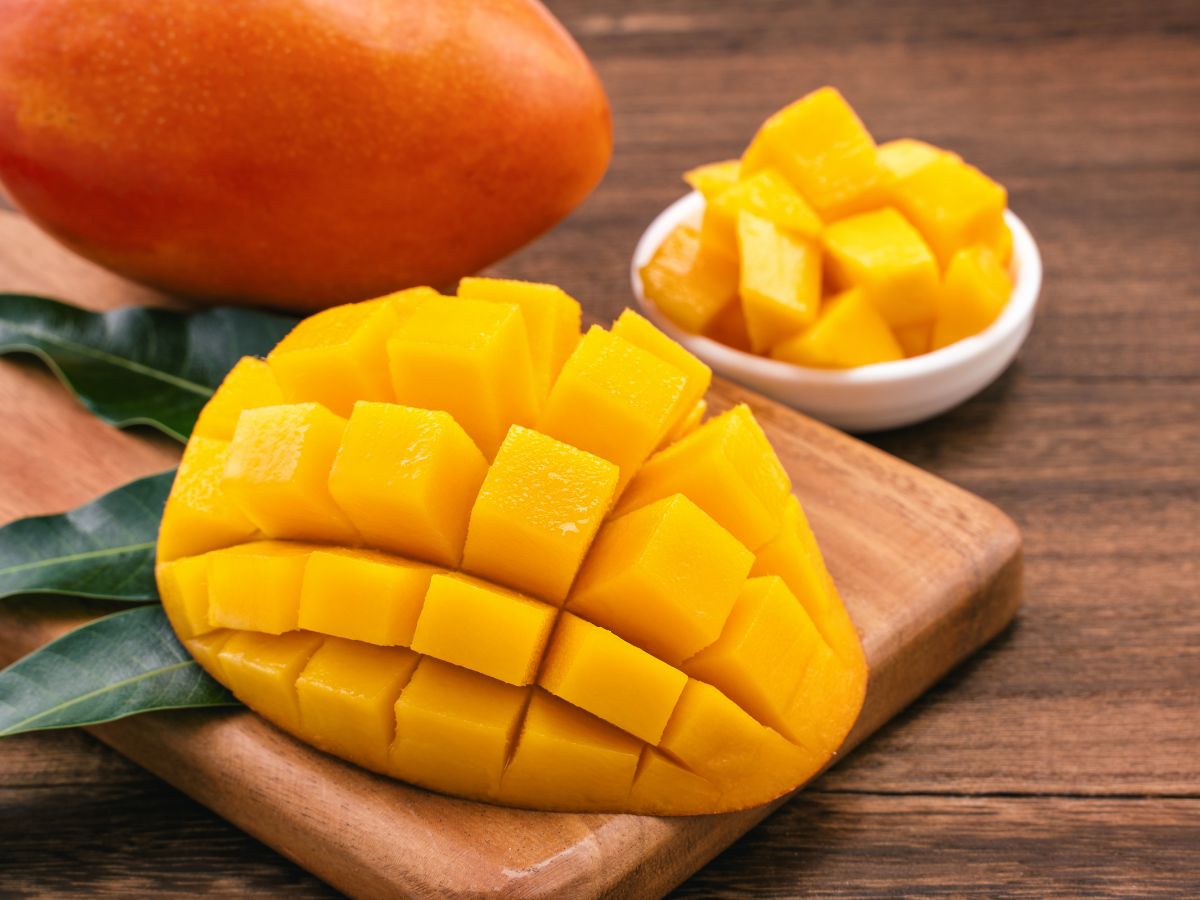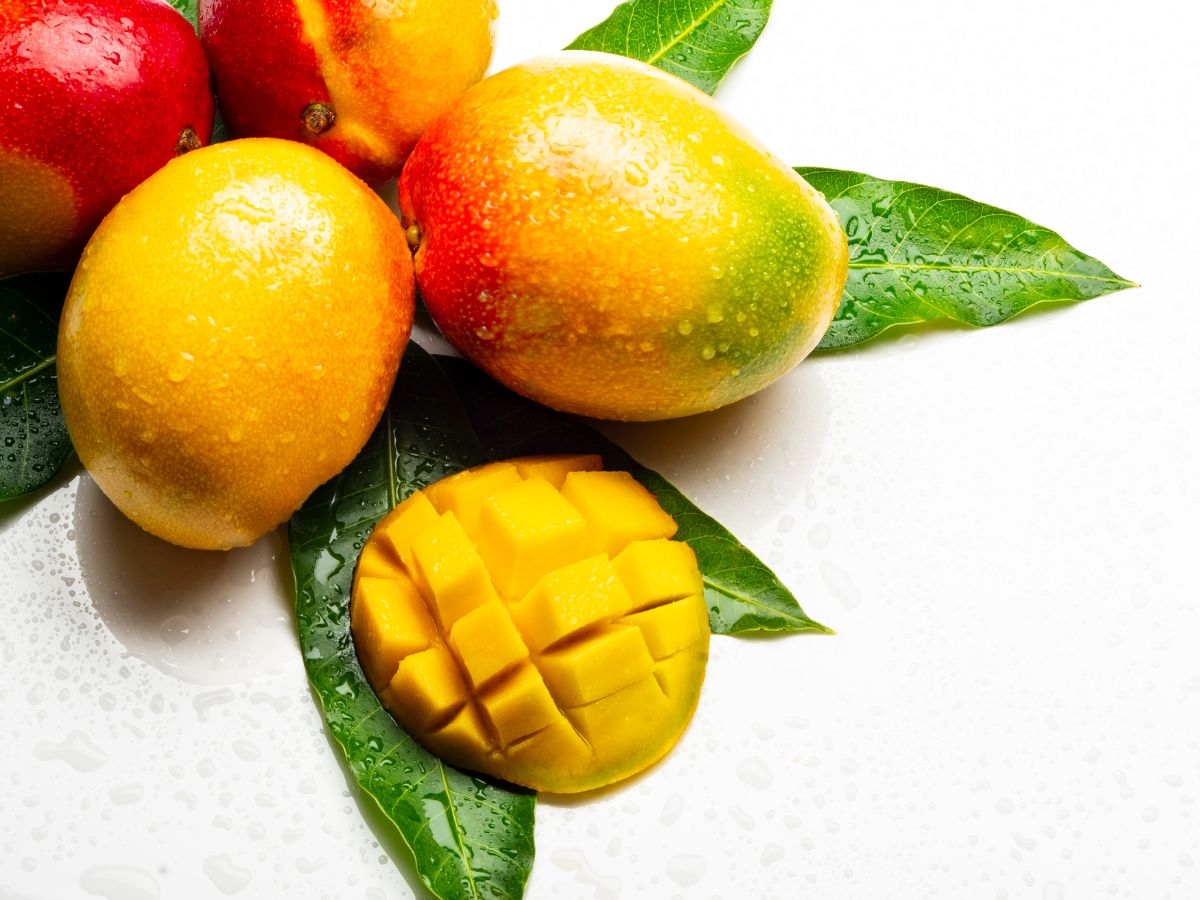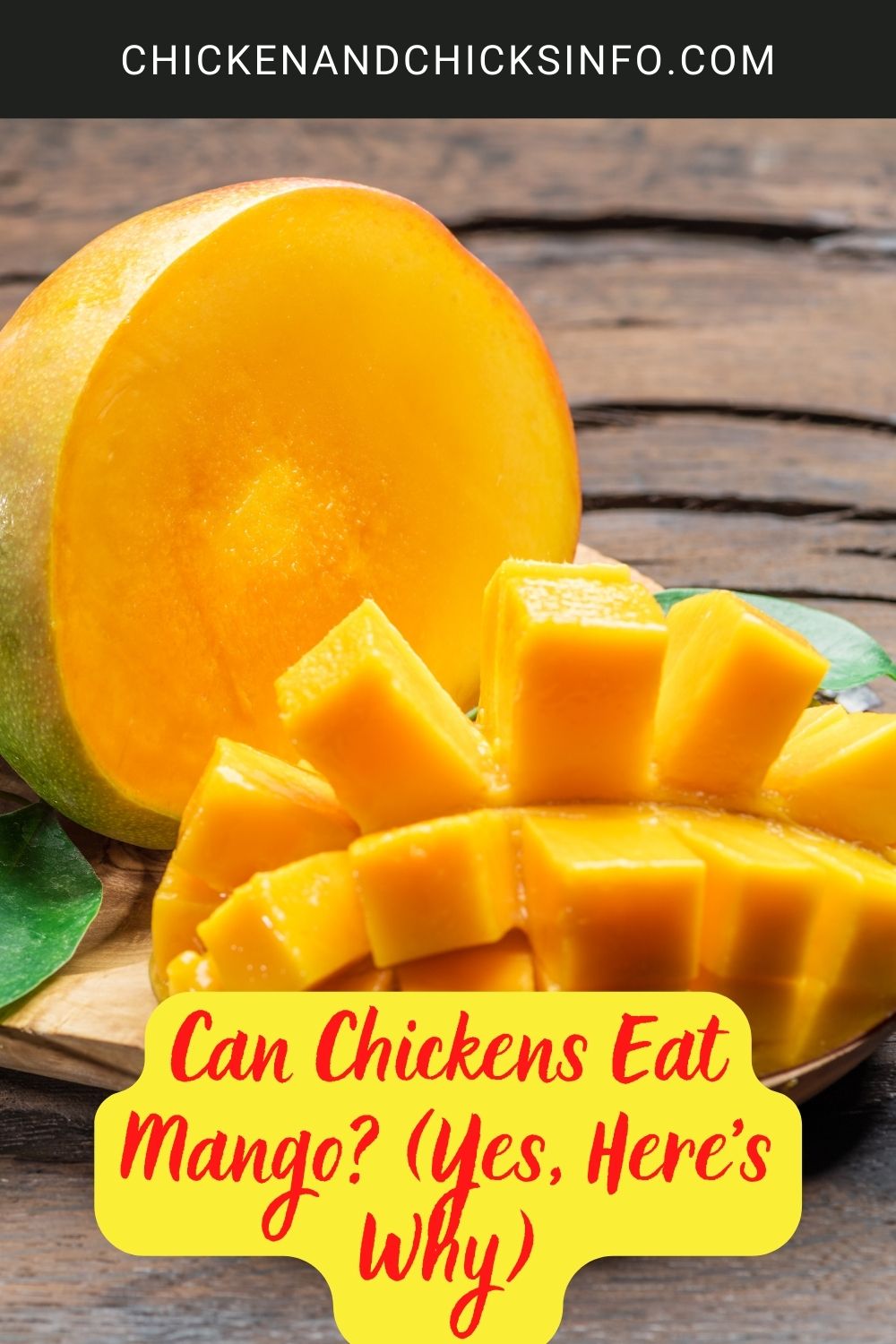
Can chickens eat mango? Are there any health benefits to them doing so?
These are interesting questions.
Personally, I love mangoes, but who doesn’t?
They are healthy fruits for us as they are packed with loads of vitamins and minerals. Although, mangoes are one of the fruits with the highest sugar content.
This doesn’t mean they’re going to be just as good for backyard chickens though. Chickens have very different nutritional requirements to us.
They aren’t bad for chicks in moderation, however. Plus, if mine any anything to go by, chickens love mango (let’s be honest, there isn’t much they don’t like).
Here’s everything you need to know about feeding your chickens mangoes, mango skin, and the importance of giving them a well-balanced diet.
Jump to:
Nutritional Benefits for Chickens Eating Mangoes
Mango is packed with antioxidants, more than a dozen different types in fact (source). Antioxidants interact with free radicals and play an important role in keeping chickens (and us) healthy.
They are also rich in a wide range of vitamins such as vitamin A, B5&6, C, E, and K. Vitamins also play a key role in poultry production (source). Although they get plenty from their feed, it doesn’t hurt to add more variation to their diet.
The only real drawback is that mango is one of the most sugary fruits. It contains around 14% sugar, which is why it’s so sweet tasting and delicious.
This isn’t going to do them any harm in small amounts. In fact, I’ve read studies where farmers were adding a little sugar to their chicken’s drinking water to boost their energy without harming them.
How to Feed Mango to Your Flock

Feeding chickens is always the easy part as they’re always ready and willing to peck away and eat treats.
There are two main ways you can feed them some mango;
- The first is to chop it into small pieces and give it to them. Because it’s a moist fruit, I wouldn’t put it on the dirty floor, rather in a feeding area.
- The second is to hang a larger piece of mango for them to peck at. This makes it more interesting for them and they can share, but you will need to make sure one chick doesn’t eat too much.
The main thing to remember is that treats like mango shouldn’t make up more than 10% of their overall diet per day.
Chickens like to eat small portions throughout the day. I feed mine their pellets first thing in the morning, and again in the evening. Giving them some fruit, veggies, and other scraps throughout the day.
Can Chickens Eat Mango Peels?
When feeding chickens I think most owners tend to think it’s a good opportunity not to waste any food. So, you’re probably looking at the peel leftover wondering if you can give them that.
We don’t eat mango skin, although it contains a lot of the same nutrition as the flesh of the fruit. You can feed the skin to your chooks too if you want, but please be aware of a few things:
Possible allergic reactions - Mango skin contains urushiol, which is known to cause allergic reactions in some people. I can’t find any studies into this chemical and chickens, so keep it in mind.
Doesn’t taste nice - Apparently, mango skin has an unpleasant taste and texture. I know it’s pretty tough, but I’ve never tasted it myself.
May have pesticide residue - We should always wash fruit we buy at stores, especially if we don’t eat the skins. They will often be treated with pesticides, so give the peel a good scrub.
Video of Chickens Eating Mango and Peach
If you needed any convincing that chicks eat mango, here’s a vid showing you some tucking into mango and peach:
Don't Forget the Importance of a Balanced Diet

Knowing how to give your chickens a complete and balanced diet is essential if you want healthy, happy chickens laying big, tasty eggs.
The bulk of their diet should come from a quality poultry pellet feed. These are specially formulated to provide most, if not all the nutrition they need.
It doesn’t hurt to provide some fresh fruits and vegetables daily, too. In fact, it will enhance their diets and give them a healthy boost of nutrition. Wholemeal rice, cooked pasta, rolled oats and other similar foods are also good.
For hens laying a large number of eggs, some extra calcium in their diet is recommended. You can even do this by crushing up dried eggshells and feeding this to them.
As long as you make sure you’re not giving them any foods past their best date or obviously spoiled, there is a lot you can share with chickens. It doesn’t hurt to do a quick search before giving them something new though, better to be safe than sorry.
Related content - Here are the benefits of feeding your chickens radishes and tomatoes.
In Summary
Chickens can eat mango, yes - in fact there are some good nutritional benefits for them eating mangoes on occasion.
Just remember that mango is a treat, and treats shouldn’t make up more than 10% of their diet. Plus, it’s higher in sugars than most other fruits, even bananas. So just a little here and there will do.





